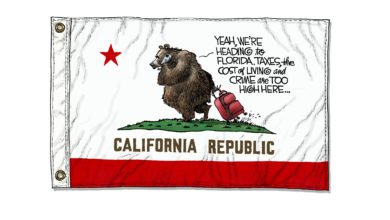Washington Florist Who Declined To Arrange Flowers For Same-Sex Wedding Settles Lengthy Lawsuit |

A Christian florist in Washington settled a legal case Thursday centering around her refusal to provide custom floral arrangements for a same-sex wedding.
“I have put to rest the last legal considerations for a decision my husband, Darold, and I made nearly a decade ago,” Barronelle Stutzman said in a release from the Alliance Defending Freedom (ADF).
The public-interest law firm that represented Stutzman stated that the legal battle that started in 2012 will end with a $5,000 payment to Robert Ingersoll, the customer she turned down.
Stutzman described how she had turned down the request from a long-time customer for the floral arrangements, and how the encounter had ended with a hug.
“I thought we remained friends who kindly disagreed on an issue deeply important to both of us,” Stutzman said. She described what happened after the refusal.
Barronelle Stutzman settled her case after 9 years of litigation to defend religious freedom as a creative business owner.
She has inspired millions to live out their faith with courage and compassion. Her letter to the public: https://t.co/M3ax3iEmAY
— Alliance Defending Freedom (@AllianceDefends) November 18, 2021
“What followed were lawsuits filed against me and a concerted effort to either force me to change my religious beliefs or pay a devastating price for believing them including being threatened with the loss of my home, my business, and my life savings,” she said in the statement accompanying the release from ADF.
In 2018, the Supreme Court vacated a previous ruling against Stutzman by the Washington state Supreme Court against Stutzman after the nation’s highest court ruled in favor of Colorado baker Jack Phillips in Masterpiece Cakeshop v. Colorado Civil Rights Commission.
However, the Supreme Court declined to hear her appeal of a 2019 ruling by Washington state’s highest court in July. Justices Clarence Thomas, Samuel Alito, and Neil Gorsuch dissented from that refusal.
WATCH:
“I’ve never had to compromise my conscience, or go against my faith,” Stutzman said in a video that accompanied the release, adding that she was retiring and that she wished the customer she turned down “the very best.”
Content created by The Daily Caller News Foundation is available without charge to any eligible news publisher that can provide a large audience. For licensing opportunities of our original content, please contact licensing@dailycallernewsfoundation.org




